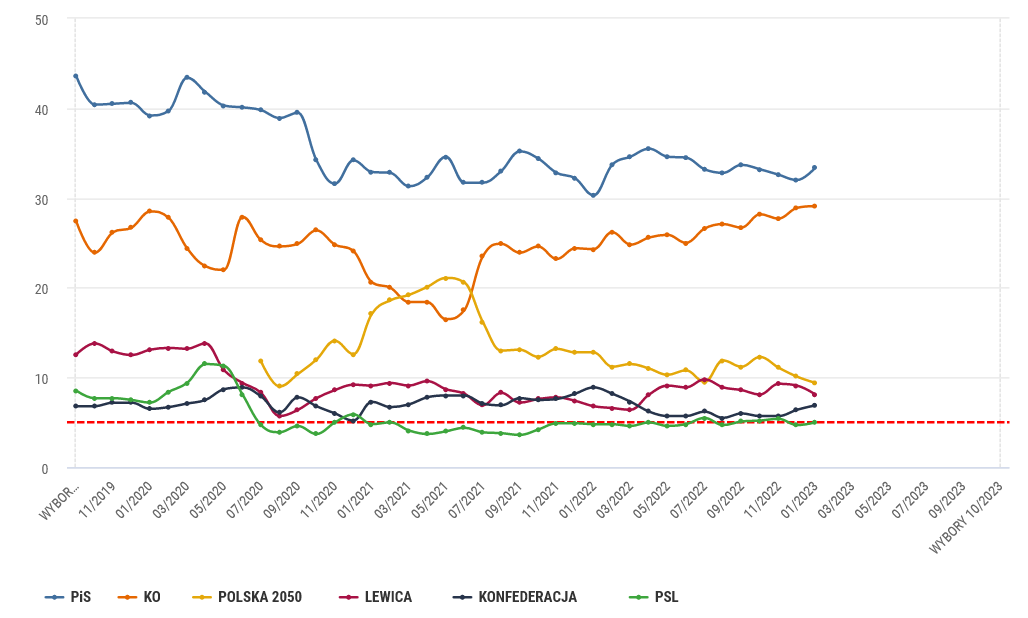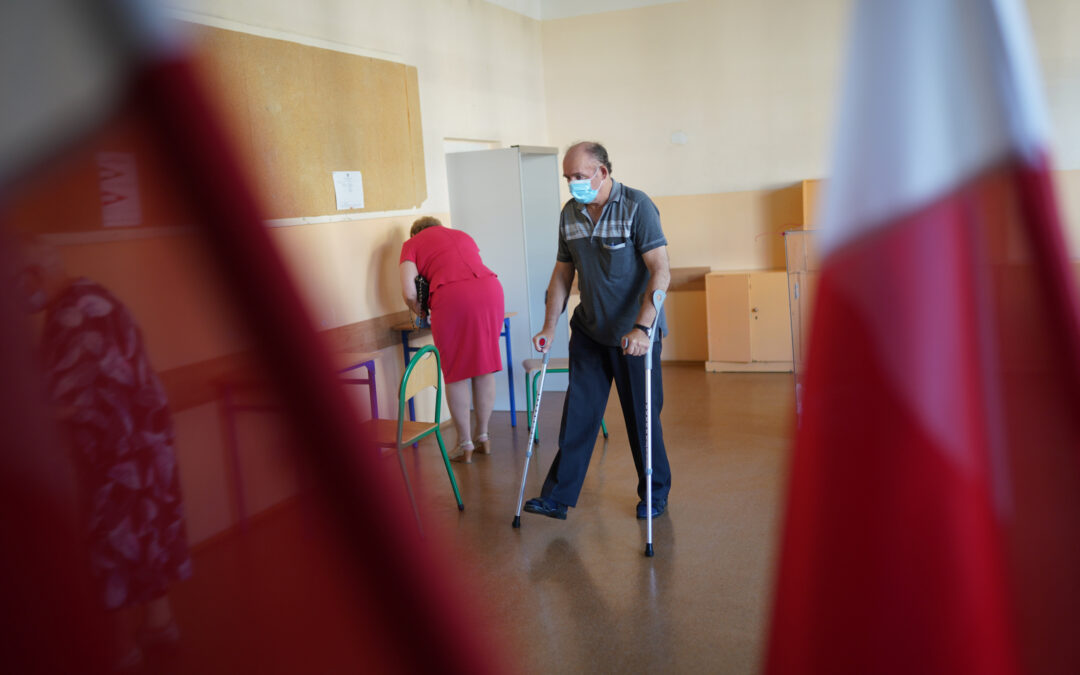The government’s majority in the lower house of parliament, the Sejm, has approved changes to Poland’s electoral code that would increase the number of polling stations and require local authorities to provide free transport on polling day for elderly and disabled people.
The ruling national-conservative Law and Justice (PiS) party argues that the legislation will strengthen the democratic process by helping more people to vote, especially those from disadvantaged groups.
The opposition, however, says that the aim is to boost turnout among demographics that disproportionately support PiS. It also argues that such changes should not be made just months before elections are due.
The bill in question was first proposed by PiS just before Christmas. However, during yesterday’s Sejm session amendments to it were submitted and adopted at such a pace that even parliamentary lawyers were unable to analyse them and predict their effects, reports broadcaster RMF.
The ruling party has tabled changes to the electoral code, including more polling stations and providing free transport to vote for over-60s
The opposition says the aim is to boost turnout among rural and older voters more likely to support the government https://t.co/iYVuPkAUIK
— Notes from Poland 🇵🇱 (@notesfrompoland) December 23, 2022
In a final vote just before 9 p.m., the legislation was approved by 230 votes to 220. Almost all of those in favour, 225, came from the PiS caucus. Every main opposition group from the left to the far right voted against the bill.
The head of the PiS caucus, Ryszard Terlecki, said that the measures are about “increasing voter turnout”, which in Poland is “one of the lowest in Europe”. At the last three parliamentary elections, turnout was 62% in 2019, 51% in 2015 and 49% in 2011.
However, Donald Tusk, leader of the centrist Civic Platform (PO), the largest opposition party, warned that “changing the rules of the game just before elections violates the basic principles of democracy”. Key parliamentary elections are due to take place this autumn.
Tusk accused PiS of seeking to “distort the election result” because it “fears defeat”, with polls showing its lead over PO narrowing over the last year. If the ruling party is willing to “manipulate the electoral law, it is easy to imagine that they will also be capable of other types of manipulation”, he added.

Monthly averages of support in polls for Poland’s six main political groups, compiled by ewybory.eu.
The legislation now passes to the upper-house Senate, where the opposition has a majority but which only has the power to delay bills. Any decisions it makes to reject or amend the law can be overturned by a majority of votes in the Sejm, after which it would pass for the approval of President Andrzej Duda, usually a PiS ally.
The proposed changes to the electoral code include increasing the number of polling stations in villages and small towns, as well as requiring local authorities to arrange transport to them for seniors and people with disabilities. Rural areas and the elderly are traditionally more likely to vote for PiS than other parties.
At the 2019 elections, exit polls showed that PiS was by far the most popular party for those aged 60+ (among whom it won over 56% of votes, compared to 44% among all age groups) and in villages, where it also won 56% of votes.
Konfederacja swój wynik zawdzięcza głównie wyborcom w wieku 18-29 pic.twitter.com/8lT5TcjSAG
— OKO.press (@oko_press) October 13, 2019
OKO.press, a liberal fact-checking and investigative journalism outlet, reports that those changes as well as others contained in the legislation will make organising elections more expensive and complex.
The website also notes that significant changes to the electoral law cannot legally be made less than six months before elections are called. The latest this year’s election can be called is 14 August. That means that, if the Senate uses its right to delay the legislation by up to a month, it cannot be passed in time.
The authors of the bill, however, say that it is “intended to improve the situation of disabled people, residents of rural areas and small towns, the elderly and the sick…facilitating their participation in public and social life, in accordance with the principle of equality”.
Main image credit: Grzegorz Skowronek / Agencja Wyborcza.pl

Daniel Tilles is editor-in-chief of Notes from Poland. He has written on Polish affairs for a wide range of publications, including Foreign Policy, POLITICO Europe, EUobserver and Dziennik Gazeta Prawna.




















